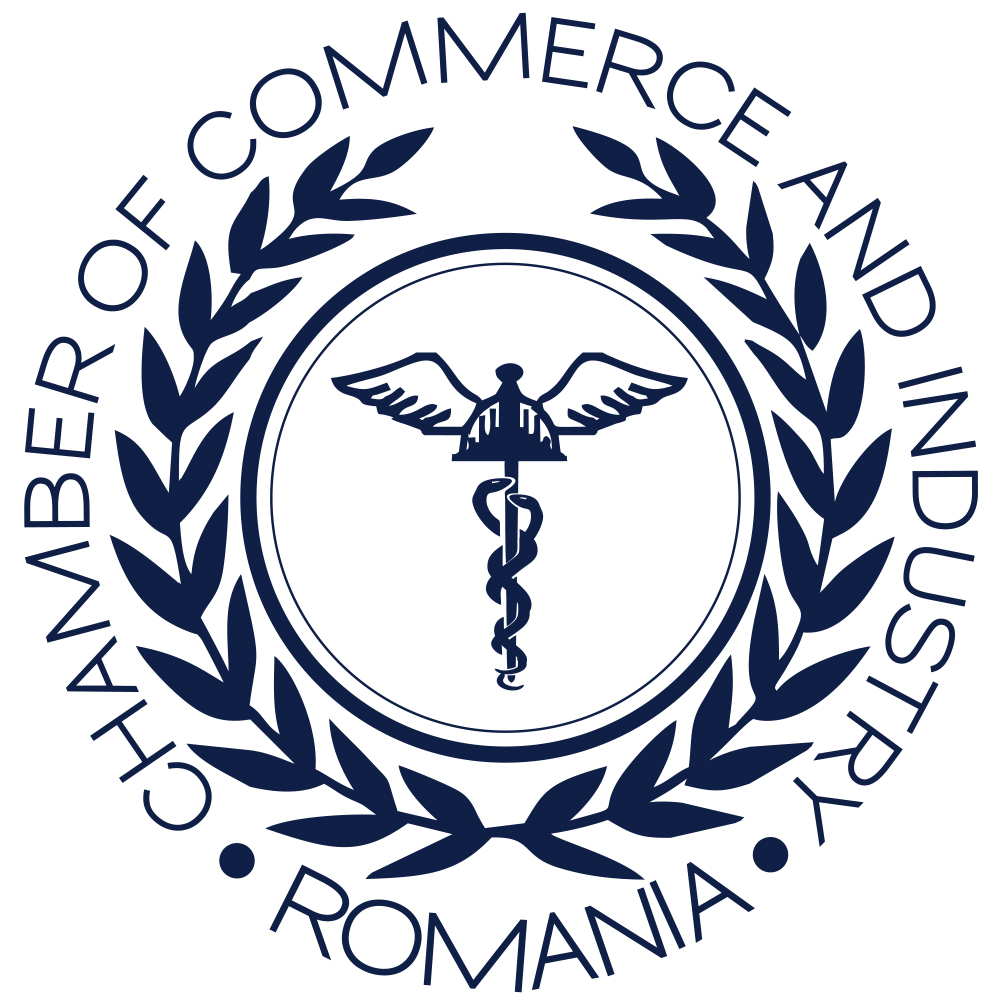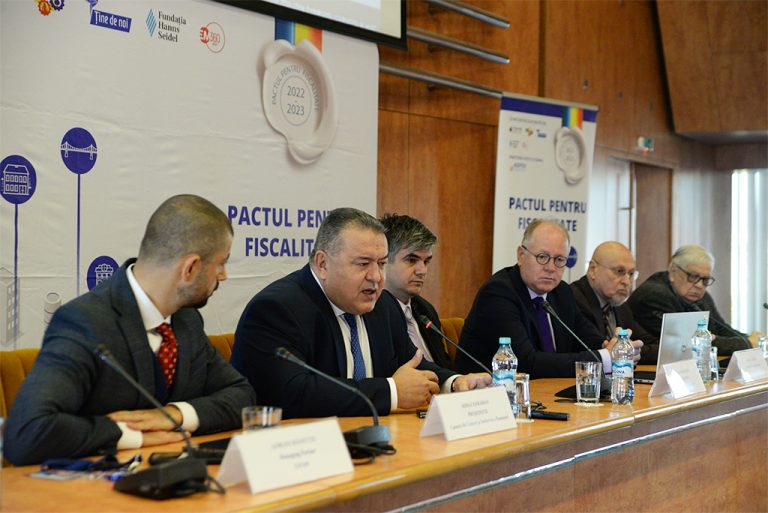Mihai Daraban: “Political decision-makers should not talk about the economic crisis in Romania”
Publicat pe 18/10/2022
Bucharest, October 18, 2022: The Chamber of Commerce and Industry of Romania (CCIR), together with the Association for Economic-Social Studies and Forecasts (ASPES), organized on Tuesday, October 18, the Pact for Taxation 2022 conference, during which it was presented the study “Perceptions about taxation in Romania”.
Due to the ineffective collection system, as well as a lack of unitary and solid policies in this area, Romania loses 475 euros every second, that is 15 billion euros per year. Romania’s real development also depends on a sound fiscal policy, which respects some fundamental principles, such as: streamlining fiscal legislation, narrowing fiscal exceptions and transparency of application and verification procedures, stimulating investments and attracting direct investments in the economy, depoliticization, professionalization, computerization and interconnection of ANAF and zero tolerance for tax evasion and economic crime.
“CCIR has always campaigned for fiscal stability and predictability. Predictability refers primarily to taxation because from the point of view of Romania’s political and economic path in the international context, things are quite clear, there are no surprises. In terms of fiscal predictability, Romania has, for several years, had a small advantage in terms of the cost of labor that makes economic production not stagnate. Obviously, the energy crisis will be a challenge for us, but as we know, challenges bring progress. Political decision-makers should stop talking about the economic crisis, because in this way they disarm investors who are becoming extremely cautious, and our economy urgently needs investments in all areas”, said the president of the CCIR, Mr. Mihai Daraban.
“The study Perceptions about taxation in Romania, carried out on a national sample of 1104 people, revealed that for the economic recovery of the country, the majority of respondents indicated the generalization of electronic payment systems and the drastic limitation of cash payments, the reduction by 10% of the number of employees in the state apparatus, as well as the reduction of the increments of employees in the public administration by 50%. Also, capping the maximum income obtained from public money by a person at 6,000 euros per month, canceling special pensions, canceling subsidies for political parties, reducing excise duties on energy and fuels by 10% and granting temporary tax facilities for companies that invest and create jobs were identified as solutions for a sustainable economic development”, said the founding president of the Social Research Bureau, Mr. Bruno Stefan.
Background
The Fiscal Pact is a project that was launched in December 2014 and its main purpose is to debate the importance of fiscal predictability and stability, combating fiscal evasion and increasing the level of collection, as well as other economic and fiscal measures.
Phone: 0374474373; 0213190085
e-mail: bcp@ccir.ro



